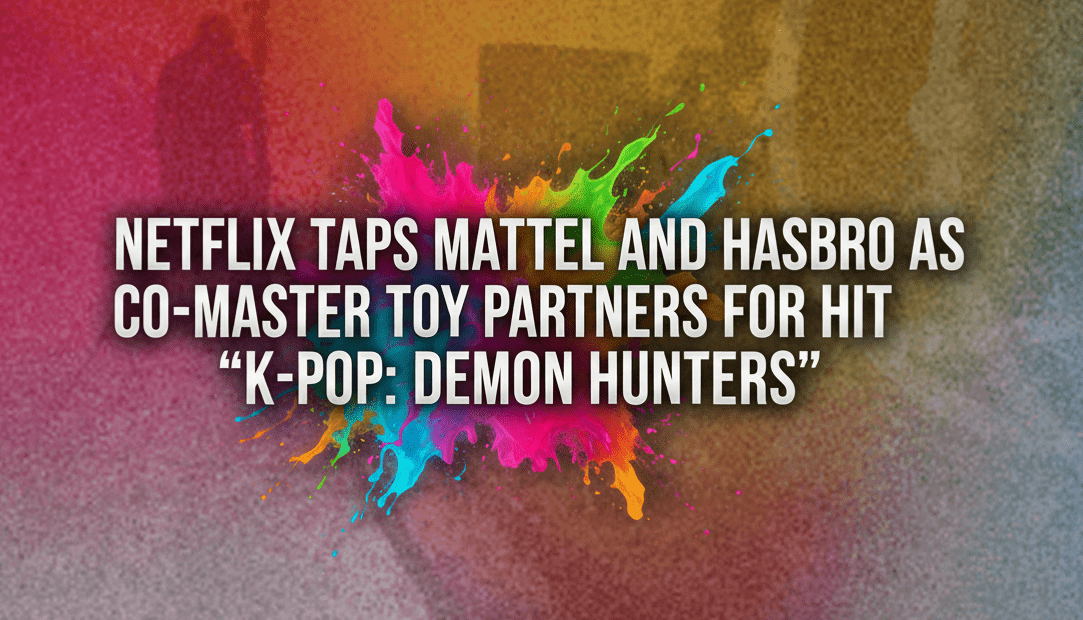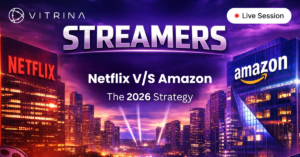The Deal
Netflix has named Mattel and Hasbro as global “co‑master toy licensees” for its breakout animated film K‑Pop: Demon Hunters. The film has already amassed more than 325 million views and generated strong fan demand. Under the agreement, Mattel will handle dolls and collectibles, while Hasbro will create games and role‑play products — including a branded version of MONOPOLY. Products are slated to hit shelves in Spring 2026.
The Partners
Netflix acts as commissioner, rights holder and exclusive platform for the title. Mattel and Hasbro serve as the official licensees and brand partners, each covering distinct (non‑overlapping) toy categories. Key voices in the announcement include Marian Lee (CMO, Netflix), Roberto Stanichi (Chief Global Brand Officer, Mattel) and Tim Kilpin (President, Toy‑Licensing & Entertainment, Hasbro).
Strategy & Precedents
What is particularly noteworthy is how this deal underscores the growing importance of the IP value‑chain inside Netflix — shifting the company from simply “one hit film” to a fully monetised franchise system.
Here’s how it works: Netflix creates an original streaming first‑title. If it hits, Netflix and its partners exploit the IP across formats, media, markets, experiences — i.e., they climb the IP value‑chain. That means film → toys → games → regional formats → spin‑offs → live tours (and so on). Think the legacy model of major studios (Disney, Warner). Here, Netflix is activating that same model.
By bringing in Mattel and Hasbro on a dual‑master structure, Netflix is signalling it intends to compete with legacy franchise players — not only in the streaming space, but on the physical retail shelf, in consumer products, in global merchandising. And by doing so, Netflix effectively moves from content platform to franchise builder.
Supply‑Chain Impact
This toy‑licensing deal is far from trivial. The lead‑time is long. Netflix, Mattel and Hasbro must coordinate global design, manufacturing and distribution to meet a Spring 2026 launch. That means collaborating across two separate production/distribution networks (dolls with Mattel, games/role‑play with Hasbro), all under one global window — a complex multi‑party supply chain. It also means Netflix is managing not just IP creation, but physical goods and logistics.
Perspective
For Netflix, this is a proof‑of‑concept: that its hit content can spawn high‑margin ancillary revenue streams via the full IP value‑chain. Internally this will likely justify a broader shift: future tentpoles won’t just be tagged for streaming release, but will be green‑lighted with a holistic franchise‑strategy attached, including CP (consumer products), games, global licensing. Netflix is saying: we don’t merely compete for subscribers; we now compete for retail shelf‑space, for brand partnerships, for the full value‑chain of IP.
Watch this space: the next Netflix “hit‑first” that becomes global will likely arrive with brand‑partners attached pre‑launch, global toy deals ready, spin‑offs mapped, local adaptations in motion. This deal is less about one film, and more about the era of Netflix as IP ecosystem operator.





 Los Gatos, United States of America
Los Gatos, United States of America





